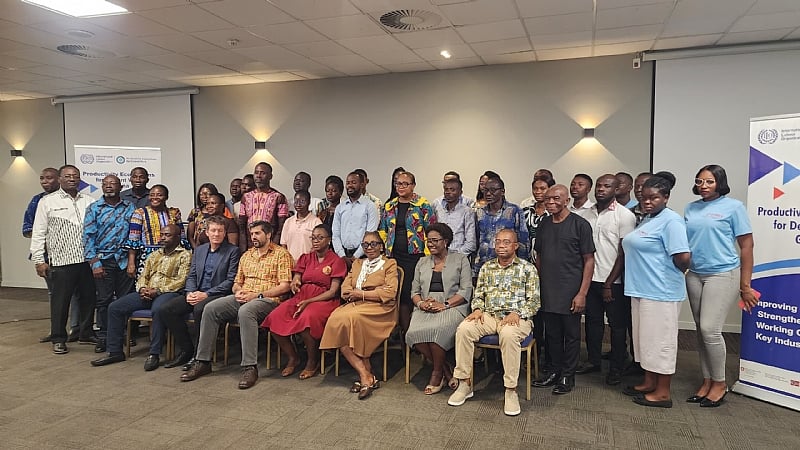Ghanaian Garment SMEs Enhance Productivity and Navigate Challenges through ILO’s SCORE Training
The International Labour Organization (ILO) has successfully concluded its SCORE (Sustainable Competitive and Responsible Enterprises) training program for ten Small and Medium-sized Enterprises (SMEs) within Ghana’s garment industry. This initiative, funded by the Swiss State Secretariat for Economic Affairs (SECO) and the Norwegian Agency for Development Cooperation (NORAD), reflects a concerted effort to bolster productivity and promote decent work within the sector. The program takes a comprehensive, three-pronged approach, targeting improvements at the macro level through policy reforms, facilitating sector organization, and fostering development at the individual enterprise level. This holistic strategy recognizes the interconnectedness of these levels and the importance of addressing challenges across the entire ecosystem.
The ILO emphasizes the crucial link between productivity and decent work, highlighting that improved working conditions and fair labor standards are not just ethical imperatives but also vital components of business success. A safe and supportive work environment empowers employees, enhancing their skills and performance, which in turn drives business growth and leads to higher incomes. The program also recognizes the transformative potential of new technologies in the garment sector. By introducing innovations such as digital pattern making, the ILO aims to reduce waste, improve efficiency, and strengthen the competitiveness of Ghanaian garment enterprises in the global market.
The recent imposition of a 10% tariff by the United States on Ghanaian goods presents a notable challenge to the sector’s growth trajectory. While acknowledging this hurdle, the ILO remains optimistic about Ghana’s competitive advantages, including its strategic location, English-speaking workforce, and well-developed infrastructure. These factors continue to make Ghana an attractive investment destination, positioning it for continued growth despite external pressures. Switzerland, a key partner in this initiative, has reaffirmed its commitment to supporting Ghana’s productive ecosystem through trade promotion, which forms a cornerstone of its economic development cooperation.
The SCORE training program has yielded tangible results for participating SMEs, exemplified by the success of Wear Ghana. Awura Abena Agyeman, CEO of Wear Ghana, praised the program’s focus on productivity enhancement, reporting significant improvements in her company’s operations. The training emphasized efficient material utilization and optimized production floor layouts, streamlining workflow and boosting productivity. This increased efficiency has not only resulted in financial gains but also enhanced the company’s ability to respond effectively to unforeseen challenges.
Despite the positive outcomes of the SCORE program, the US tariff remains a pressing concern for Ghanaian garment exporters. The increased cost of Ghanaian goods in the US market poses a threat to export volumes and overall competitiveness. In response to this challenge, there is a call for proactive government intervention and a strategic shift towards exploring new markets, particularly within Africa. The African Continental Free Trade Area (AfCFTA) presents a significant opportunity, with a burgeoning ready-to-wear fashion market estimated at $15 billion. Leveraging this vast and accessible market can help mitigate the negative impact of the US tariff and unlock new growth potential for Ghanaian businesses.
The successful completion of the SCORE training program and the positive feedback from participating SMEs demonstrate the potential of targeted interventions to enhance productivity and foster decent work within Ghana’s garment sector. While external challenges such as the US tariff require ongoing attention, the resilience and adaptability of Ghanaian businesses, coupled with strategic support from organizations like the ILO and partner countries, provide a foundation for continued growth and contribution to Ghana’s economic development. The focus on leveraging the AfCFTA market represents a proactive and promising strategy for mitigating external risks and expanding into new, high-potential markets.














